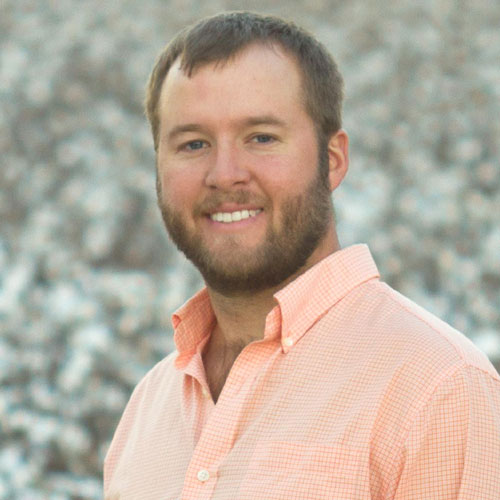(Click on play button above for video.)
Meet the Speakers


About this Session
Soybean Insect Management
Presented by: Ben Thrash
Extension Entomologist, University of Arkansas
This session will discuss the economics of insect management in soybean as well as tough decisions growers and consultants face when making treatment decisions. Topics will include economic thresholds, economic injury levels, yield losses from various insect pests, insecticide termination timing, insecticide seed treatments, and foliar insecticide choices.
Alternative Farming Practices Due To Necessity
Presented by: Brett Stewart
Arkansas Farmer: Soybeans
Necessity has led Brett Stewart to toy with some alternative farming practices. No-till has been a good fit going into soybeans. He has been able to establish good stands and maintain yield going straight no-till into both corn stubble and rice stubble with an ordinary Great Plains drill. Most of his patty rice has been converted to furrow-irrigated rice to take away the challenges that levees present post harvest. Also he has had no trouble drilling furrow-irrigated rice straight into both soybean stubble and corn stubble. No-tilling corn has been more challenging, as stands have been a little too uneven and yields are not where they should be, but there is still a cost savings in both tillage and herbicide applications. “I don’t want to give up on no-tilling corn yet though because I have observed better yields for all crops as we get into the third year of no-till in a particular field,” he says. “Right now I am crediting that to compaction issues in the first and second years following conventional tillage. I am excited to continue these cost-saving and time-saving experiments.”
Stewart farms approximately 2,000 acres total of rice, corn, soybean. Currently, each crop consists of about1/3 of his total acres. Some years he plants about 200 acres of wheat, which is then double cropped to soybeans. A first generation farmer, he started his own operation in 2016 and moved into full-time farming in 2017. This is his fourth crop as a full-time farmer. He did not grow up on a farm, but he admired farmers and their lifestyle. His first experience in agriculture was working in entomology for Dr. Gus Lorenz as a seasonal technician during the summers of 2009, 2010 and 2011.

